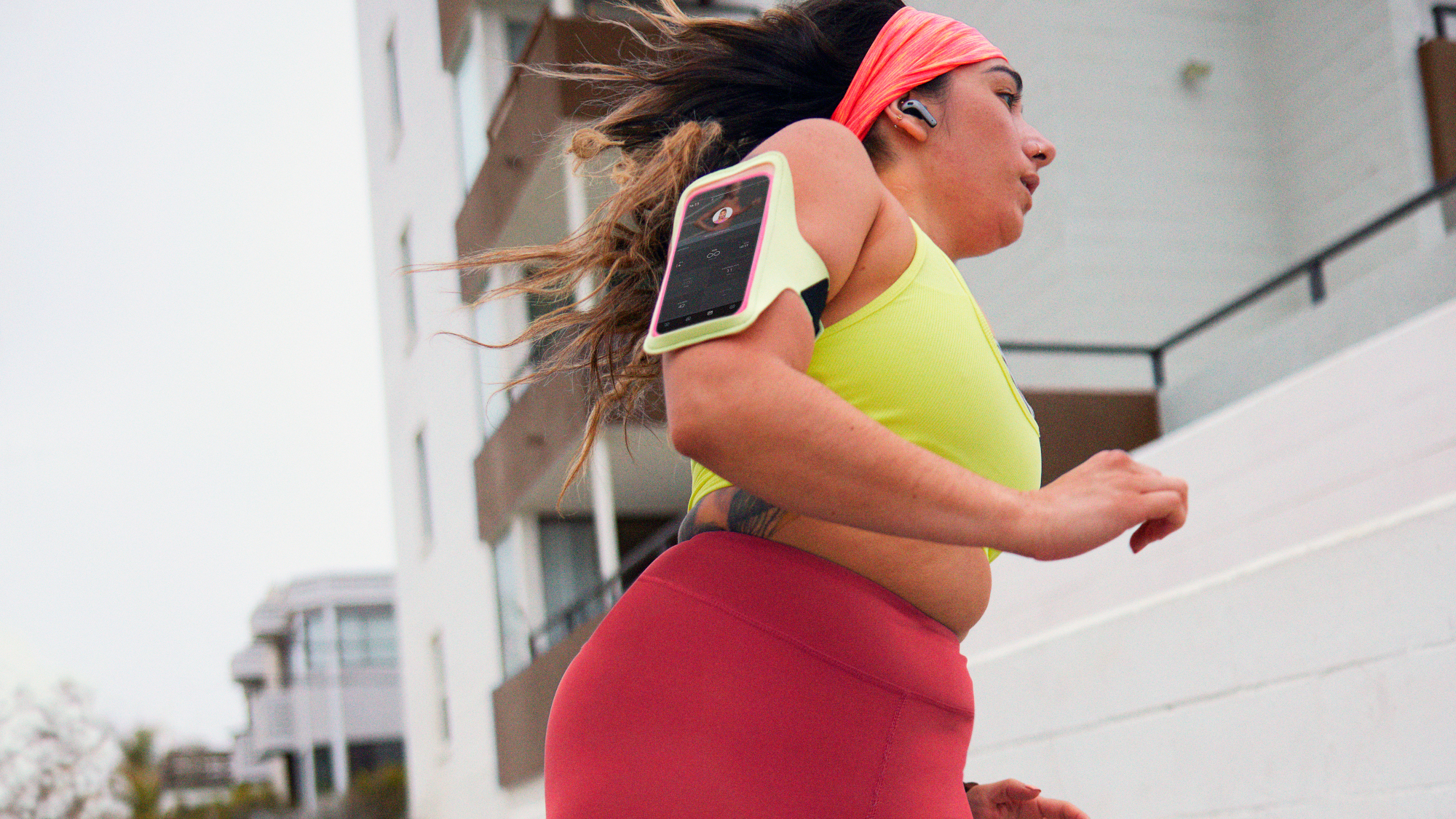
Many people say that they can’t run and treat regular runners like a different species. Until her mid-30s, Susie Chan was one of those running-averse people. She smoked, drank a lot of alcohol and had never attempted a 5K. Now in her 40s, she’s an ultramarathon runner and a Tread instructor at Peloton.
“I got into running because I wanted to get fitter. I was a single mum and running was something I could do on my lunch hour without access to a gym,” says Chan. She started off running for two or three minutes at a time, gradually building up the amount of time she could run for. After a while, her brother convinced her to sign up for a half marathon.
“I went from doing a half marathon to ultramarathons in two years,” says Chan.
As someone who didn’t get into running until later in life, Chan firmly believes that anyone can start running at any age. We asked her to share some advice for beginners who are looking to get started.
How To Get Into Running
Start Small
There’s no need to put lots of pressure on yourself to run a certain distance at first. “When I started I tried running around a football pitch, which I couldn’t do without stopping. I remember thinking I failed or I wasn’t doing it right,” says Chan.
“If you’re moving faster than walking, then you’re running,” says Chan. “If you’re jogging along and thinking ‘I can’t run’ or ‘I’m not a runner’ then you’re not going to be able to enjoy it—and you need to enjoy it.”
To keep a positive mindset, set manageable goals that you’ll be able to achieve. If you’ve never run before, you’re very unlikely to be able to run 5K without stopping—that’s the case for almost everyone.
Chan recommends that you set yourself a movement goal, rather than a running goal. For example, go out and move for 15 to 20 minutes. “This might mean running for one minute then walking for two minutes for that period of time,” says Chan.
Take Walk Breaks
“People think that you’ve got to be running the whole time, but that is a myth,” says Chan. “I have been running for quite a long time now and I still take walk breaks or stop mid-run and that’s absolutely fine."
Peloton has Run/Walk classes. Usually, they’re 50% running and 50% walking, and they’re a great way for beginners to get started. You can either do these on a treadmill, or listen to these guided sessions while running outside (there are pairs of the best running headphones which only cost $20/£20). Coach’s couch to 5K plan also uses run-walk intervals.
Train Regularly, But Don’t Overdo It
If you’re new to running, you might be tempted to throw yourself into it and run multiple times a week, but Chan says that running once or twice a week is more than enough to see improvement.
You don’t have to run for a very long time either. “Some people think you’ve got to be training for an hour to get a proper training session in but that’s not true—15 or 20 minutes is fine,” says Chan. “As you train, you can run for longer so you might want to add five or 10 minutes to your run.”
Don’t Start Too Fast
“Always start off easy and try to get faster, rather than the other way round,” says Chan. “Starting too fast is a classic mistake people make. It’s easily done, even for experienced runners. I’ve been known to run too fast at the beginning of a race.”
Invest In A Pair Of Running Shoes
If you can afford it, it’s a good idea to buy a proper pair of running shoes. “If you’ve got the wrong footwear on, you might be more prone to injury,” says Chan. “It’s also a good way to stay motivated—if you’ve bought yourself a new pair of shoes you’ve got to use them!”
Check your local specialist running store to see if they offer gait analysis. This may suggest you could benefit from a stability shoe at first. Also, don’t be put off by the price of the shoes on display, our guide to the best cheap running shoes has plenty of affordable options.







